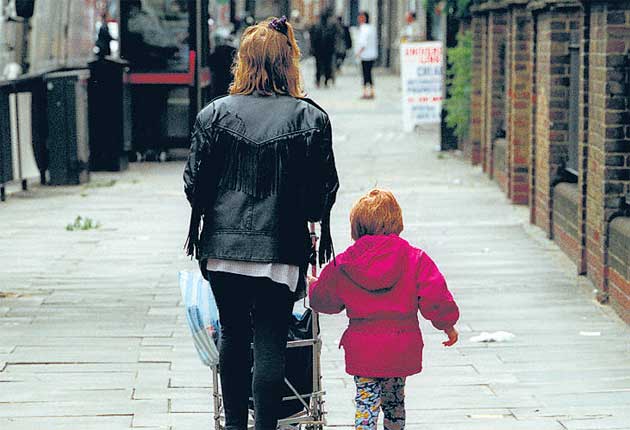Take child payments direct from fathers' accounts, say MPs
New body meant to beef up maintenance system spends 50p to collect each £1 as £4bn goes unpaid

All separated parents ordered to pay child maintenance should have the money taken directly from their bank accounts, a committee of MPs demands today amid new evidence that hundreds of thousands of youngsters are still being let down by the Child Support Agency.
Three years after a major overhaul of the agency, nearly £4bn in payments to families remains uncollected, a report by the Work and Pensions Select Committee says.
The recommendation, if implemented, would catch 142,300 absent parents who repeatedly refuse to pay maintenance for their children – a figure that has actually increased since the agency was given tougher collection powers.
But it would also ensure that many more youngsters who are short-changed because of weak financial arrangements do receive money. Half the three million children in separated families do not have effective financial arrangements in place.
The select committee says this problem could be solved by forcing all non-resident parents – research shows that nine out of 10 of them are male – to pay maintenance directly from salaries or bank accounts.
The agency was reformed in 2008, with a new body, the Child Maintenance and Enforcement Commission, given the job of chasing up payments and overseeing the CSA. The overhaul also encouraged parents who were on amicable terms to set up voluntary arrangements.
The commission was given tough new powers to penalise absent parents who repeatedly failed to pay, including taking money from bank accounts, seizing property and even prison sentences. A string of other powers – including curfew orders and seizure of passports and driving licences – has not yet been introduced, the report says.
It concludes: "The lack of a child maintenance agreement or failure to make due payments have severe financial consequences for families, producing a devastating impact on children's wellbeing.
"The most important aspect of any system is to guarantee that maintenance is paid in full and on time. Evidence shows that this would best be achieved if all non-resident parents were required to pay child maintenance through direct deductions from salaries or bank accounts."
Ministers, however, have warned that such deductions would place an extra burden on employers, making it more likely that the money would be drawn directly from bank accounts. This is likely to concern civil liberties groups because it would be applied to all non-resident parents, including the majority who pay on time.
A damning report five years ago found the agency was spending billions on administration, including heavily criticised computer technology. Today, the select committee says fundamental problems remain: while £1.1bn in maintenance reaches children every year, the new commission spends £572m on administering its collection service – a cost of 50p for every £1 collected.
Some £3.8bn owed by absent parents has gone uncollected: £2.8bn is unlikely ever to be traced because cases were more than 10 years old, individuals had died or parents no longer wanted the money.
Dame Anne Begg, the Labour chairman of the committee, said: "Successive governments have tried to reform and improve the child maintenance system without success."
The coalition government plans further reforms: a Green Paper this year proposes charges for using the agency to encourage parents to reach private arrangements. But the select committee, backed by Gingerbread, the charity that supports single parents, and the National Association for Child Support Action, is worried that charging would be punitive for families on low incomes because research shows they are less likely to reach such private arrangements.
Subscribe to Independent Premium to bookmark this article
Want to bookmark your favourite articles and stories to read or reference later? Start your Independent Premium subscription today.

Join our commenting forum
Join thought-provoking conversations, follow other Independent readers and see their replies